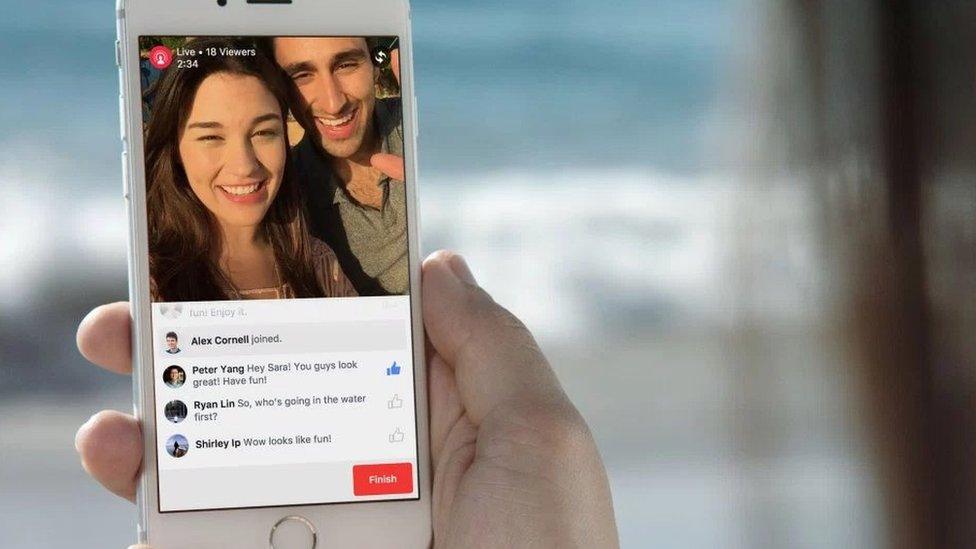Facebook rolls out live streaming video service
- Published

Facebook users will be able to live stream video to their friends
Facebook has begun rolling out a new feature on its social network which allows users to stream live video.
A select group of celebrities and high profile users have been able to use the service for several months.
Live streaming via mobile phones has become one of the big technology trends of the year, with Twitter-owned Periscope and Meerkat proving popular.
Last year, Amazon paid $1bn for live streaming game site Twitch.
Initially Facebook's live video feature will be available only to a small percentage of people in the US and will be limited to iPhones.
The tech giant said that "over time, the company plans to bring it to all users" but it did not give specific timescales.
In a blogpost , externalintroducing the service, Facebook said: "Live lets you show the people you care about what you're seeing in real time - whether visiting a new place, cooking your favourite recipe or just want to share some thoughts."
The stream will display the number of live viewers, the names of friends who are watching and real-time comments as they are written. The video will be saved to users' timelines until they choose to delete them.
Nation of sharers
Facebook has also updated the way people can share photo collages - allowing users to mix photos and videos.
Ian Maude, an analyst with research firm Enders said of the streaming service: "Facebook has a vast audience to promote services to so there is nothing stopping it from becoming a significant player in video streaming."
He said that Britain, like many other countries, had become "a nation of sharers".
"We like to tell what what we are doing all the time."
Privacy advocates have raised concerns about such services but Mr Maude believes that Facebook will be keen to avoid any controversy.
"They will be cognisant of the privacy concerns and I believe there are restrictions on how the content can be shared, so that it won't be automatically broadcast to everyone."
- Published20 September 2015

- Published4 December 2015
